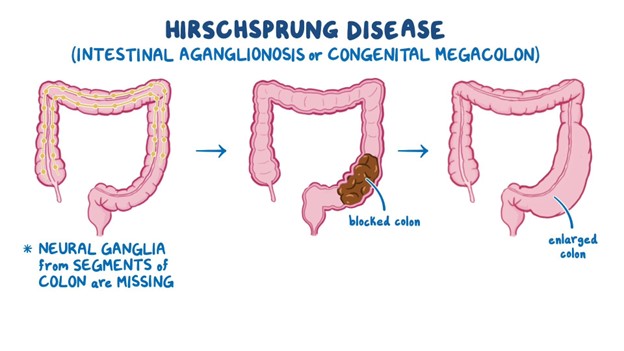A nurse is caring for a 2-month-old infant who is postoperative following surgical repair of a cleft lip. Which of the following actions should the nurse take?
Encourage the parents to rock the infant.
Administer ibuprofen as needed for pain.
Position the infant on her abdomen.
Offer the infant a pacifier
The Correct Answer is A
Correct answer: A
A. Encourage the parents to rock the infant: Rocking provides comfort and soothing for the infant. It helps reduce anxiety and promotes relaxation during the immediate postoperative period
B. Administer ibuprofen as needed for pain: Administering ibuprofen as needed for pain is not typically recommended for infants under 6 months of age without specific instructions from the healthcare provider. Ibuprofen is generally avoided in young infants due to potential risks of adverse effects, especially in the immediate postoperative period
C. Position the infant on her abdomen: After cleft lip repair surgery, it is generally recommended to position the infant on her back to prevent any pressure on the surgical site and to minimize the risk of infection. Placing the infant on her abdomen may interfere with the healing process and increase the risk of complications.
D. Offer the infant a pacifier.
Avoid the use of oral suction or placing objects in the mouth such as a tongue depressor, thermometer, straws, spoons, forks, or pacifiers.
Nursing Test Bank
Naxlex Comprehensive Predictor Exams
Related Questions
Correct Answer is D
Explanation
For a 6-month-old infant who has undergone the repair of an intussusception, the nurse should select an oral electrolyte solution. This solution is specifically designed to replace lost fluids and electrolytes due to vomiting or diarrhea, which is crucial in preventing dehydration in infants.
Options A, B, and C are not suitable choices for an infant in this situation:
A. Half-strength orange juice: Citrus juices, including orange juice, are not recommended for infants under 12 months old. They are acidic and may cause stomach upset or diarrhea.
B. Sterile water: Sterile water does not contain the necessary electrolytes, and offering plain water to an infant after surgery or during an illness can lead to electrolyte imbalances and further dehydration.
C. Half-strength infant formula: Diluting infant formula can lead to inadequate nutrition for the infant. The baby requires appropriate nutrition to support recovery after surgery, and diluting formula can be harmful.
D. An oral electrolyte solution is the best choice as it helps maintain proper hydration and electrolyte balance in the infant's body during the recovery period. If the infant tolerates the oral electrolyte solution well and is not at risk for aspiration, the healthcare provider may gradually advance the diet to include other clear liquids and then slowly reintroduce regular infant formula or breast milk as appropriate. The healthcare provider's instructions should be followed carefully to support the infant's recovery and ensure adequate nutrition.
Correct Answer is C
Explanation
Hirschsprung disease is a condition where nerve cells are missing from parts of the intestine, leading to problems with bowel movements. The treatment for Hirschsprung disease often involves surgery to remove the affected portion of the bowel and create a temporary ostomy (stoma). An ostomy is an opening in the abdominal wall through which waste material can pass into an external pouch, bypassing the affected section of the intestine.
The correct statement by the parent that indicates an understanding of the teaching is C. The parent is expressing relief that the ostomy is temporary, meaning it is not a permanent situation. This response indicates that the parent has been informed about the nature of the ostomy and its planned duration, which is an essential aspect of preoperative teaching.
Let's go through the other options and explain why they are not the best choices:
A. "I'm glad my child will have normal bowel movements now." This statement is not accurate because, after the initial surgery with the creation of a temporary ostomy, the child will not have normal bowel movements. The ostomy is created to bypass the affected part of the intestine, and the child's bowel movements will be directed through the ostomy until further surgery is performed to reconnect the intestine.
B. "I want to learn how to use my child's feeding tube as soon as possible." While learning how to use a feeding tube may be relevant for certain medical conditions, it is not specifically related to Hirschsprung disease or the planned initial surgery. Hirschsprung disease primarily affects the bowel and its function, not the child's ability to eat.
D. "I want to learn how to empty my child's urinary catheter bag." Hirschsprung disease does not directly impact the urinary system, so there is no specific reason for the parent to learn how to empty a urinary catheter bag in the context of this condition or the planned surgery.

Whether you are a student looking to ace your exams or a practicing nurse seeking to enhance your expertise , our nursing education contents will empower you with the confidence and competence to make a difference in the lives of patients and become a respected leader in the healthcare field.
Visit Naxlex, invest in your future and unlock endless possibilities with our unparalleled nursing education contents today
Report Wrong Answer on the Current Question
Do you disagree with the answer? If yes, what is your expected answer? Explain.
Kindly be descriptive with the issue you are facing.
